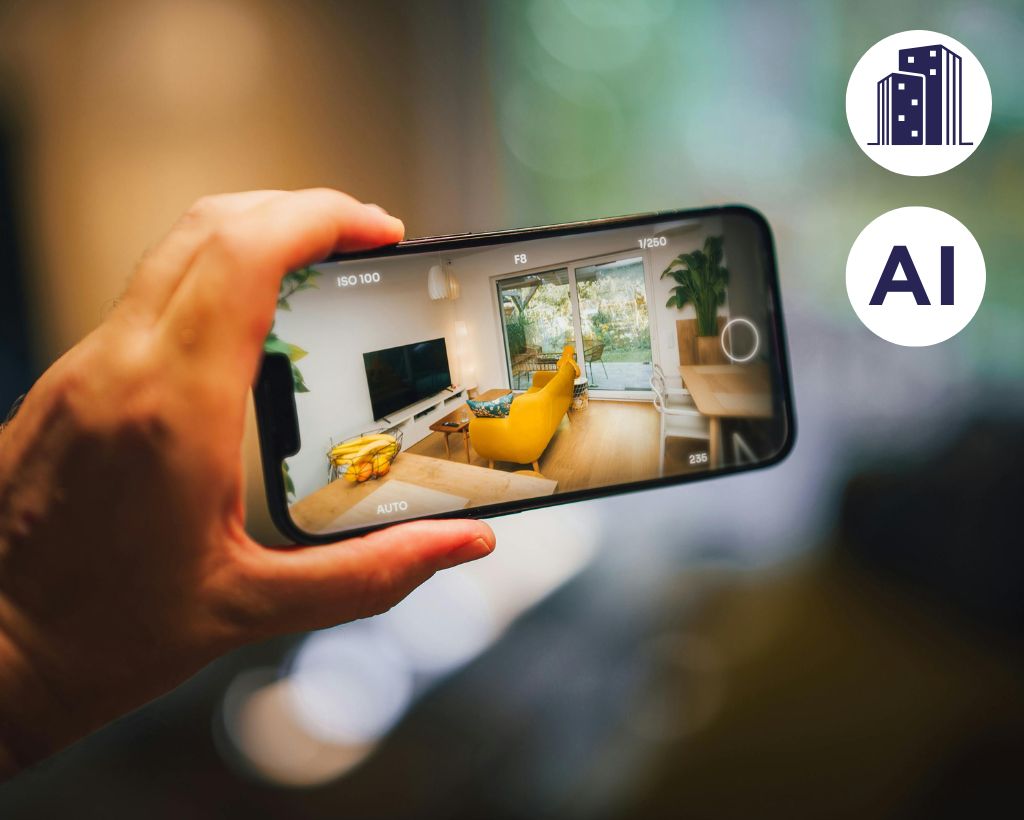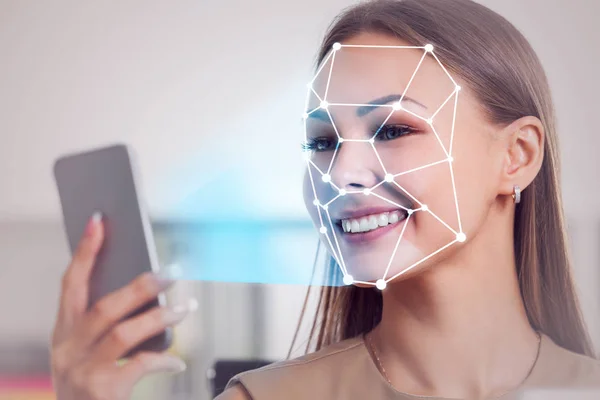
- How Do Virtual Tour Systems Work?
- Featured Areas: Personalized 'Highlight' Feature
- Emotional Analysis: Its Impact on Purchasing Decisions
- Real-Life Scenario: Virtual Tour + AI Use
- Tools and Platforms Used
- LeadOcean: How AI-Powered Customer Journey Optimization Is Revolutionizing the Real Estate Sector?
- Future Vision: Feeling the Home Instead of Seeing It
- Conclusion
The real estate sector has rapidly embraced digital transformation after the pandemic. While virtual tours have emerged as an alternative to physical meetings, we can state that these experiences have now reached a level where they enable completely independent decision-making supported by artificial intelligence (AI). Now, let’s examine in detail the working principles of AI-supported virtual tour technologies, user behavior analyses, and emotional impact mechanisms.
How Do Virtual Tour Systems Work?
Virtual tours are created by combining photos or videos taken with 360-degree cameras in a software infrastructure. Users can virtually navigate within the house, transition between rooms, and make decisions based on detailed images.

The Difference of AI-Supported Virtual Tours:
Visual Recognition: The system can detect details such as furniture quality, type of interior decoration, and lighting level.
User Tracking: Information is recorded regarding which areas are looked at more, and which rooms are spent the most time in.
Personalized Suggestions: Key areas within the house are highlighted according to the user's interests.
Featured Areas: Personalized 'Highlight' Feature
AI analyzes the user's gaze movements, clicks, and time spent to determine which areas need to be highlighted within the home.
How Does It Work?
Eye-Tracking: Using cameras or integrated sensors, the areas the user is focusing on are identified.
Heatmap Generation: The points where the user spends the most time are mapped.
Recommendation Engine: Based on the extracted data, personalized messages such as "The area you like most in this house: The spacious terrace" are presented.
Technologies Used:
• Matterport + Cortex AI: 3D tours and AI-supported object recognition.
• EyeQuant: Eye movement analysis to create user attention maps.
• Microsoft Azure Cognitive Services: Behavior analysis and emotion recognition services.
Emotional Analysis: Its Impact on Purchasing Decisions
Emotions play a critical role in real estate purchasing decisions. A user’s connection to a space can lead to quicker decisions than rational criteria.
AI Supported Emotion Recognition:
Facial Expression Analysis: Cameras detect the user’s expressions such as smiling, surprise, or disappointment.
Tone of Voice Analysis: If questions are asked during the virtual tour, emotional fluctuations in the tone of voice are analyzed.
Micro Expressions: Real emotional states can be understood through brief, unconscious facial expressions.
Areas of Impact:
• Targeted Recommendations: "This area brings you more happiness, would you like to see similar houses?"
• Dynamic Presentations: Areas where the user reacted positively are highlighted more prominently.
Real-Life Scenario: Virtual Tour + AI Use
Let’s consider a fictional scenario:
• The user is examining a 3+1 apartment.
• They spend over 20 seconds in front of the large windows and view in the living room.
• A smile is detected.
• The system highlights this area and suggests, "Houses similar to this one for view lovers."

This personalized experience can enable the user to complete their decision-making process 30% faster.
Tools and Platforms Used
• LeadOcean (PlusClouds): Can be used to automate the processes of finding potential customers and quickly communicating with them to schedule meetings.
• Matterport: The leading platform for 3D home tours.
• Emotion AI (Affectiva, RealEyes): Facial and emotion recognition technologies.
• Google Cloud AI: Image analysis and natural language processing APIs.
LeadOcean: How AI-Powered Customer Journey Optimization Is Revolutionizing the Real Estate Sector?
LeadOcean is a platform developed by PlusClouds that allows companies to quickly and effectively find potential customers in the digital space and directly communicate with them to schedule meetings. Especially in the real estate sector;
• It reaches relevant target audiences and creates a new potential customer pool.
• Sends personalized messages through automated email and SMS systems.
• Provides automatic registration to CRM systems when a meeting request is received.
• Increases conversion rates with timely reminders and offer messages according to relevant customer segments.
Real estate companies can easily add users showing interest after a virtual tour to their databases with LeadOcean, offer them special deals, and expedite the sales process.
In short, with LeadOcean, the AI-supported virtual tour experience transcends being merely an exploration phase, transforming into a warm customer communication channel that leads directly to sales.
Real-Time and Flexible Integration
LeadOcean has a flexible architecture that can work alongside other SaaS platforms, CRM systems, and marketing automation tools. Specifically:
• CRM systems like HubSpot, Salesforce, advertising platforms such as Google Ads, Meta Ads,
• Can easily integrate with virtual tour services (e.g., Matterport) to create a complete digital sales ecosystem.
This flexibility offers real estate companies the advantage of managing their customers from a single panel, instantly updating campaigns, and responding quickly to developments in the field.
Future Vision: Feeling the Home Instead of Seeing It
AI-supported virtual tours elevate the concept of "seeing" to the level of "feeling." Systems that analyze not only the physical attributes of a house but also the emotional responses of users will enable purchasing decisions to be predicted much earlier.
In the near future, with AI-supported virtual tour systems, we will be able to say "yes, this is my home" without setting foot inside the door, just with a VR headset and the assistance of artificial intelligence.
Conclusion
Conclusion
AI-supported virtual tour technologies are revolutionizing the real estate purchasing experience. By integrating layers such as visual recognition, user behavior analysis, and emotional analysis, both user experience is enhanced and purchasing processes are accelerated.
With this technology, it is now possible to "feel" and decide without having to visit a home!





